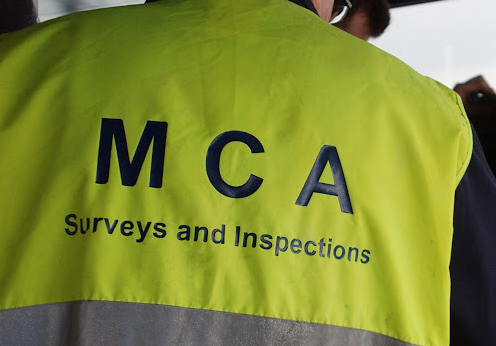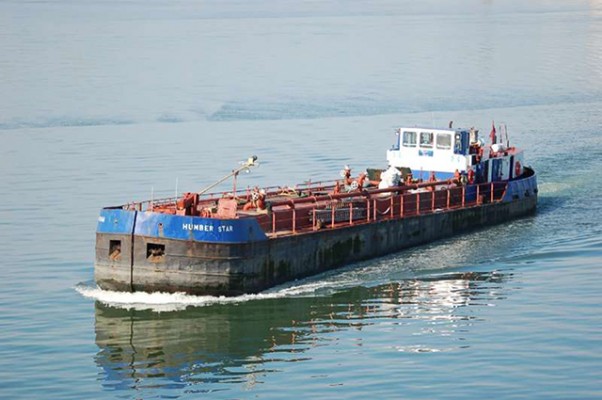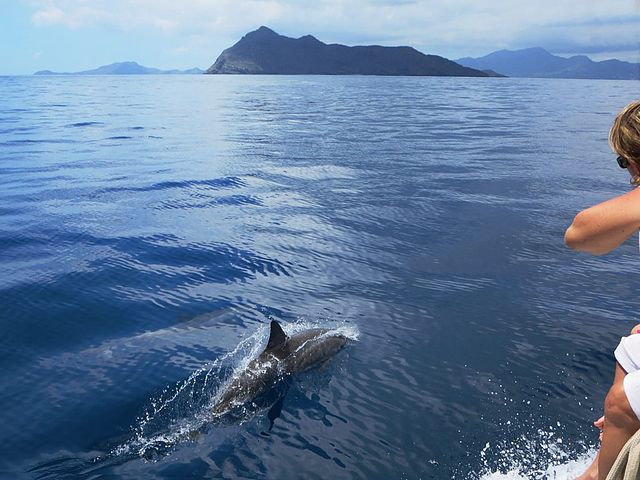RMT disappointed by MCA decision to close marine offices
The shipping union, RMT, has vowed to fight the closures of marine offices by the MCA. Four are to shut as part of restructuring.
14 July
The RMT has reacted angrily following the announcement by the Maritime and Coastguard Agency (MCA) that it is to close some of its marine offices.
It comes following a consultation on plans to reduce the MCA’s national network of marine offices by 2019.
Speaking to YBW following the MCA announcement, the RMT’s general secretary, Mick Cash, said the decision will compromise the MCA’s Survey and Inspection capacity.
“This is a deeply disappointing decision, made worse by the MCA sneaking it out on their blog,” he stated.
“The decision, as far as it goes, makes no mention at all of the impact on seafarers from closing Marine Offices and we continue to believe that the MCA’s Survey and Inspection capacity would be compromised by a shrinking of the national network.”
The general secretary stressed the union will fight the closures.
“There is nothing from the MCA on where seafarers living and working on the east coast of England can go to get eye tests, training, certification and other advice essential to ratings and officers if these offices close,” he said.
“We cannot accept a situation where our seafarers of today and tomorrow are consistently locked out of growth and development in the domestic shipping industry and RMT will continue to fight these closures,” he pledged.
However, the MCA insists the changes are necessary to modernise the service. It will also save the agency more than a third of a million pounds.
As a result of the consultation, which ended ion 21 April 2016, two offices will remain open that were originally marked for closure.
A senior experienced marine surveyor who also will have over-arching responsibility for the River Thames.
Belfast, Liverpool, Cardiff Aberdeen, Plymouth, Southampton, Beverley (Hull) and Glasgow Marine Offices will remain open.
A new office will be opened in the Colchester/Ipswich area.
These will form the main Marine Office hubs.
Dover, Falmouth and Milford Haven will be satellite bases attached to the main marine office hubs from where they will be managed – Southampton, Plymouth and Cardiff respectively.
The Tyne office will close along with Harwich, Norwich and Orpington.
8 July
The Maritime and Coastguard Agency (MCA) has announced that it is to close its offices in Tyne, Harwick, Norwich and Orpington.
It follows a consultation on proposals to scale down its national network of marine offices by 2019.
The shipping union, RMT announced in April that it believed the closure of offices “would jeopardise the UK’s ability to operate a safe and secure ports network, as well as the future provision of seafarer services.”
It also stated the closure of Tyne would threaten the North East economy.
YBW attempted to contact RMT for comment on the MCA’s decision. No one was available, due to staff training.
In a media release, the MCA said the consultation resulted in changes to its original proposals, including keeping two offices open that were originally marked for closure.
It also identified a senior experienced marine surveyor who will have over-arching responsibility for the River Thames.
The proposals save the MCA more than a third of a million pounds in terms of estate costs.
Belfast, Liverpool, Cardiff Aberdeen, Plymouth, Southampton, Beverley (Hull) and Glasgow Marine Offices will remain open.
A new office will be opened in the Colchester/Ipswich area.
These will form the main Marine Office hubs.
Dover, Falmouth and Milford Haven will be satellite bases attached to the main marine office hubs from where they will be managed – Southampton, Plymouth and Cardiff respectively.
The Tyne office will close along with Harwich, Norwich and Orpington.
The MCA said these changes are part of a much larger transformation programme for its survey and inspection business to improve customer service and efficiency.
It claimed the proposals, which have been approved by the Executive Board of the MCA, will save money with minimal impact on the MCA survey and inspection work force.
The move will also see more remote working, which the RMT also objected to.
The shipping union believed it amounted “to an attack on seafarer support and a major de-regulation in survey standards”.
But, the MCA said the maritime world “is changing” and it had “to move with the times”.
MCA chief executive, Sir Alan Massey, said: “We’ve had great difficulty in recruiting and retaining marine surveyors; and our customers are also – and rightly – demanding more responsive services that are fit for a competitive world market in the digital age.”
“We need to address those things squarely. Modernising our approach, in terms of both the geographical location of our offices and the way our surveyors work, offers us a positive, efficient way forward,” he explained.
Sir Alan said the MCA had consulted widely with staff and external customers.
He added the MCA “is and remains committed to the highest standards in upholding maritime safety throughout our areas of responsibility: UK-wide and indeed globally. This transformation programme will greatly help us to achieve that.”
The director of Maritime Safety and Standards, Katy Ware is overseeing the plans for the Survey and Inspection Transformation Programme.
She acknowledged that the move might cause concerns.
“We understand that people might be worried about the future but we have assured both our surveyors and staff that we will continue to work with them as the change programme moves forward,” she stressed.
“People matter in this agency and we are committed to making sure we continue to act with that in mind,” she added.
Ware said the MCA will work with affected staff.
‘We will work with all those staff affected on an individual basis on their transition plans as we will now be carrying on the work with those involved as we work towards implementing this new plan,” she explained.
“I am mindful that we face some testing times ahead. However with the support of our diverse and highly experienced workforce I very much look forward to leading the Directorate of Maritime Safety and Standards as it develops to deliver a service that ensures we meet the expectations of our stakeholders and allows staff to develop themselves,” concluded the director.
8 April
The Maritime and Coastguard Agency (MCA) is consulting on proposals to scale down its national network of marine offices by 2019.
Tyne, Plymouth, Beverley, Harwich, Orpington and Norwich all face closure.
The MCA is proposing retaining eight offices in Falmouth, Southampton, Dover, Liverpool, Cardiff in Wales, Glasgow and Aberdeen in Scotland and Belfast (Bangor) in Northern Ireland. It will also establish marine offices at the existing Humber Coastguard Operations Centre in Bridlington and a new site in the Ipswich area.
The move would save the MCA around £400,000 a year
But the shipping union, RMT believes these closures will be “damaging”
The RMT General Secretary, Mick Cash said, “The MCA’s Marine Office closure plans are on a par with the Coalition’s dangerous cuts to coastguards and local tax offices. These plans would jeopardise the UK’s ability to operate a safe and secure ports network, as well as the future provision of seafarer services.”
“The regional impact of these closures would also be damaging, with the plan to close the Tyne Marine Office in 2017 a particular threat to the North East economy and the cluster of maritime workers and services in the region, including the offshore supply and decommissioning sectors. RMT will fight to keep the Marine Office in Tyne and elsewhere open, to safeguard the future of seafarer services and to promote fast and effective certification of ships working from UK ports,” concludes Cash.
The RMT is also opposed to proposals to change MCA working practices. These include an online booking portal for vessel surveys and inspections, issuing certificates digitally, moving its Seafarers Documentation System online, a database of surveyor competence and outsourcing of survey and inspection work to ‘Recognised Organisations’ and Red Ensign Group administrations.
The RMT believes this amounts “to an attack on seafarer support and a major de-regulation in survey standards”.
However, in its consultation document, the MCA states the move would result in offices having “better balanced workloads and a strategically coherent geographical footprint around the UK”.
It says it plans to establish “a remote, IT-enabled working regime” based around its surveyors to minimise the impact on customers affected by office closure.
The MCA admits the proposals potentially impact on the availability of venues for MCA oral examinations. It is investigating the use of other venues.
The consultation closes on 21 April
https://www.gov.uk/government/organisations/maritime-and-coastguard-agency#consultations
Owner fined thousands for rescue of ‘dangerously unsafe’ vessel
The owner of a previously sunken harbour tanker has been fined and ordered to pay costs after pleading guilty to…
Agencies combine to fight smuggling, trafficking in Scotland
The UK Border Force and Police Scotland Border Policing Command are rolling out new defences against criminal activities on Scotland's…
Government confirms second group of MCZs
All 23 sites in the second tranche of MCZs have been designated, but the RYA is claiming that this will…












